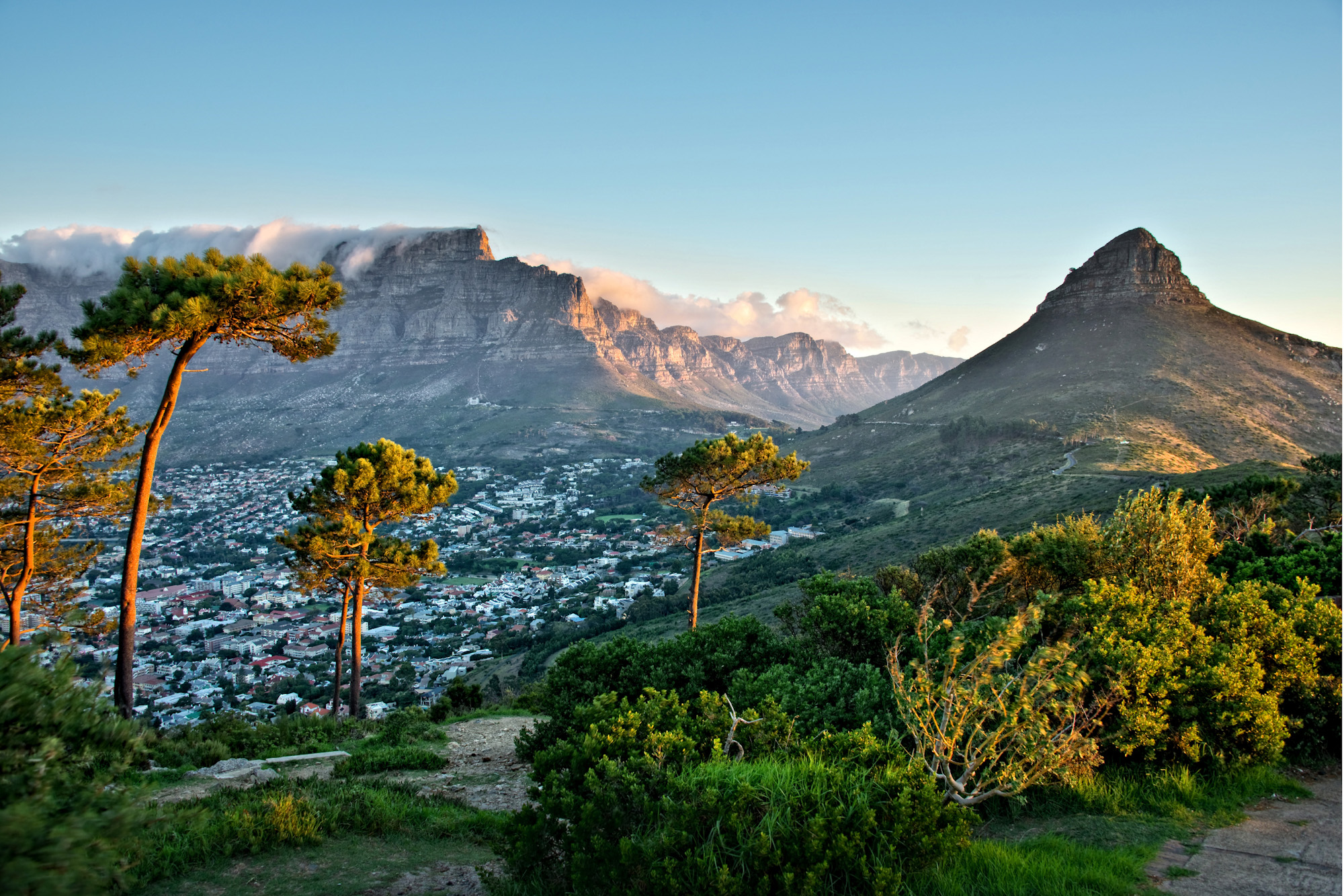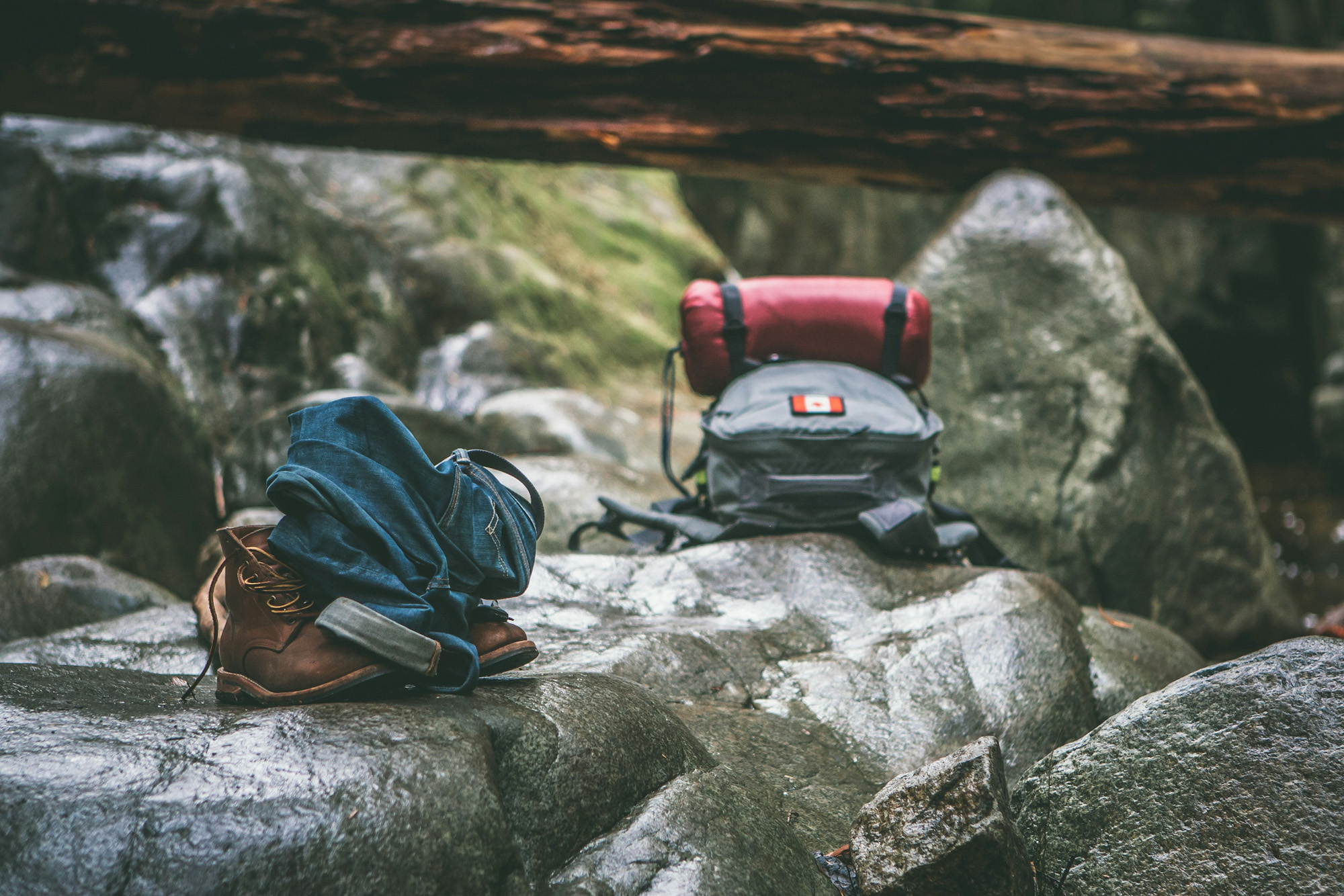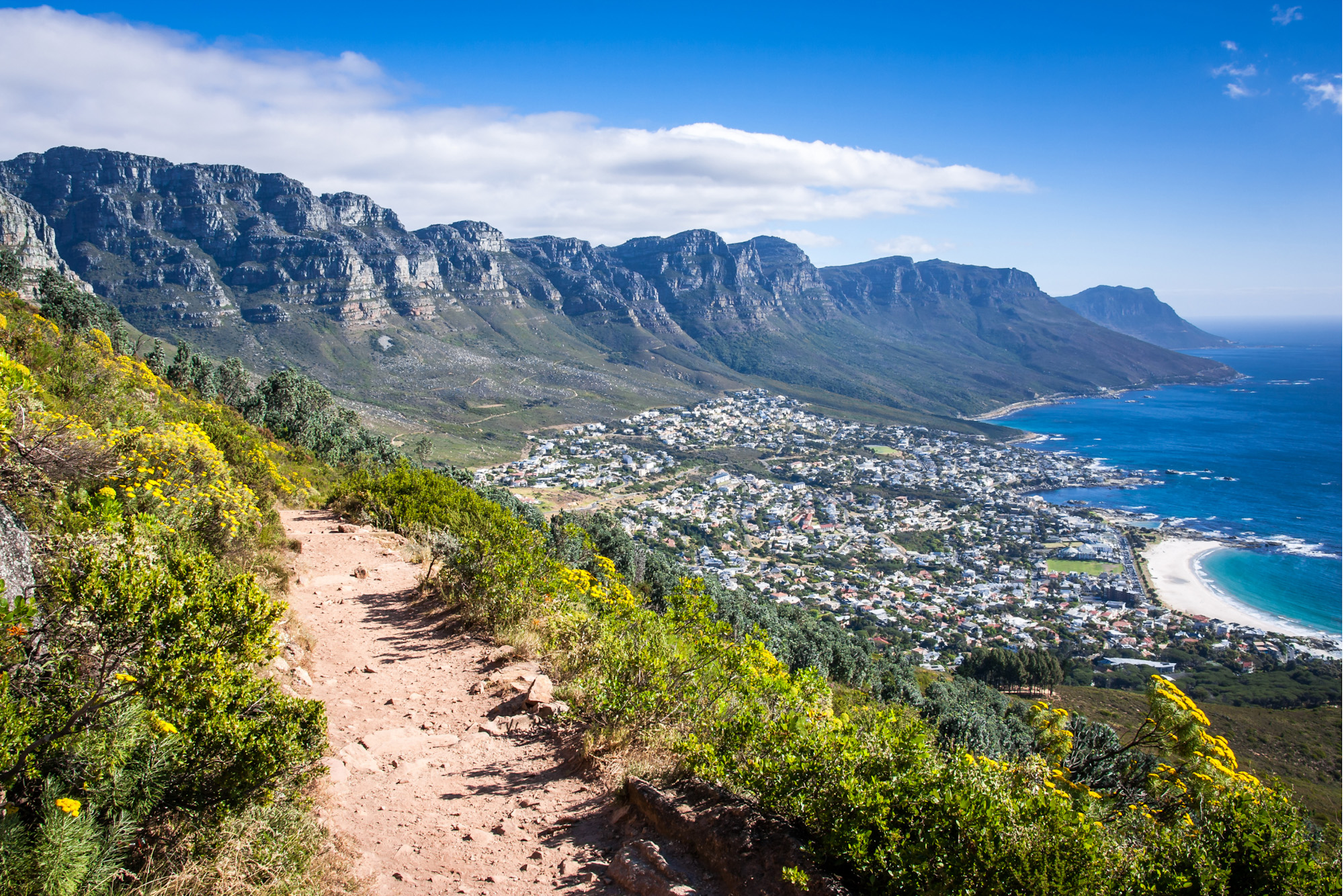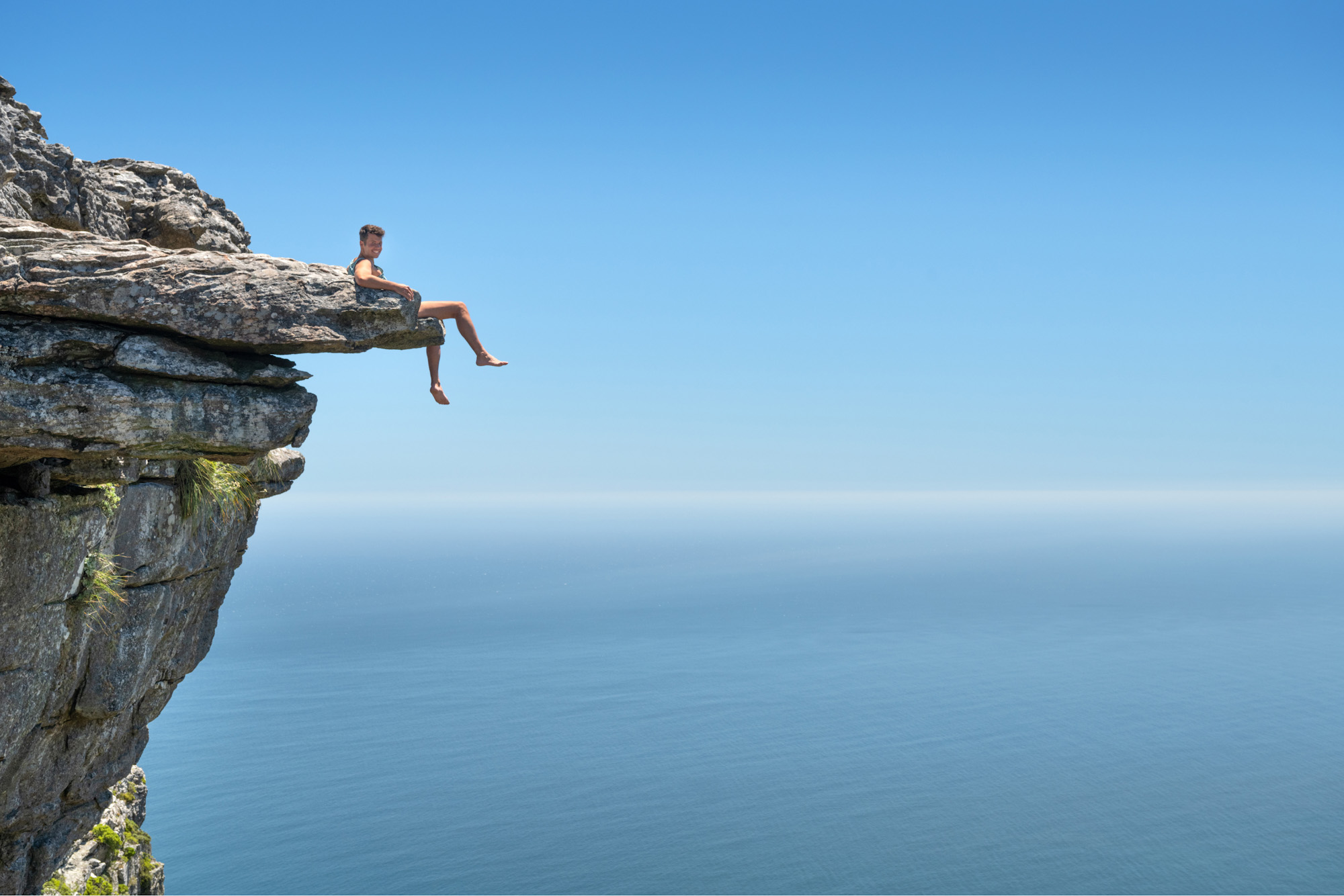
Cape Town, South Africa
The complete guide to hiking in Cape Town
Southern Africa • See & do • The complete guide to hiking in Cape Town
Cape Town’s ultimate hiking guide
Cape Town is a hiker’s dream destination, where every trail offers a journey through stunning landscapes and rich biodiversity. The city’s unique landscape offers a variety of trails that cut through fynbos-covered mountains, wind along rugged coastlines and ascend to breathtaking viewpoints. The sheer diversity of the flora and fauna here, including the iconic Cape Floristic Region, makes every hike an opportunity to discover something new. Whether you’re a seasoned adventurer or a casual walker, Cape Town’s hiking trails won’t disappoint, with trails that range from easy strolls to challenging climbs. In this guide, we’ll take you through the best hiking spots the city has to offer and share some vital hiking tips that will help you on your next hiking trip in the Mother City.
Photography courtesy of Unsplash
Table of Contents

Why is Cape Town a hiker’s paradise?
Cape Town’s reputation as a hiker’s paradise is well-deserved, thanks to its extraordinary blend of natural beauty, diverse ecosystems and a variety of trails that suit all skill levels. The city is framed by iconic mountains like Table Mountain and Lion’s Head, offering panoramic views that are hard to match anywhere else in the world.
The Cape Floristic Region, a UNESCO World Heritage site, with over 9,000 plant species, many of which are found nowhere else on earth, is another big draw. Hikers also appreciate Cape Town’s diversity when it comes to trail difficulty, you’ll easily find a variety of hikes within Cape Town that cater to all fitness levels and they are all equally beautiful.

When is the best time to hike in Cape Town?
The ideal time for hiking in Cape Town is during the spring (September to November) and autumn (March to May) months. These seasons offer mild temperatures, generally ranging between 15°C to 25°C (59°F to 77°F), making for comfortable hiking conditions. Spring brings blooming wildflowers, especially in the Table Mountain National Park, adding a nice splash of colour to the trails.
Hiking in Cape Town during the winter (June to August) has pros and cons. While temperatures are cooler, usually between 8°C to 18°C (46°F to 64°F) and the rain brings lush greenery, the weather can be unpredictable with occasional heavy rains and strong winds. Summer (December to February) is the warmest, with temperatures often climbing above 30°C (86°F), making early morning or late afternoon hikes essential to avoid the intense heat.
To beat the heat and crowds, early morning hikes are recommended year-round. In summer, starting your hike before 07:00 ensures you’ll enjoy cooler temperatures and avoid the midday sun. Late afternoon hikes are also a good option, particularly in summer, as temperatures drop and the trails become less crowded. In winter, mid-morning to early afternoon is ideal, allowing you to take advantage of the warmer part of the day while still finishing before sunset.

What gear is needed for hiking in Cape Town?
When hiking in Cape Town, sturdy, well-fitted hiking boots with good ankle support are essential due to the varied terrain, which includes rocky paths and sandy trails. Choose boots with a solid grip to navigate the sometimes slippery conditions. Staying hydrated is crucial, especially during the warmer months, so carry a hydration pack or water bottle that holds at least 2 litres, as many trails lack water sources.
Protection from the intense African sun is also important; bring a wide-brimmed hat, sunglasses and high-SPF sunscreen, as UV rays can be strong even on cloudy days. While many trails are well-marked, it’s wise to carry a physical map or use a reliable GPS app, ensuring your phone is fully charged and considering a power bank. A basic first aid kit with bandages, antiseptic wipes and blister treatment can be a lifesaver.
For longer hikes or trails with steep sections, trekking poles can offer extra stability and reduce knee strain. A handheld GPS device is useful for navigating remote or complex trails, particularly where cell signals may be weak. Insect repellent can be helpful during warmer months, especially in areas with dense vegetation.
Due to Cape Town’s rapidly changing weather, dressing in layers allows you to adjust to temperature fluctuations and packing a lightweight, waterproof jacket can prepare you for unexpected rain. High-energy snacks like nuts, dried fruit or energy bars can help maintain your energy levels on longer hikes.

What are the types of hiking terrains found in Cape Town?
Mountainous terrain, like those on Table Mountain and Lion’s Head, features rocky and steep paths. These trails often require careful footing and can be quite strenuous due to the elevation gain and uneven surfaces. You need to be prepared for a lot of upward walking and should wear sturdy shoes to navigate the rocky terrain.
Forest trails consist of routes through areas like Newlands Forest and Cecilia Forest, offering shaded paths with a mix of dirt and rocky sections. These trails are generally cooler and provide a more moderate hiking experience, though some can still be quite steep and challenging.
Hikes along the coastline, such as the trails in Cape Point Nature Reserve, offer stunning ocean views and a mix of sandy and rocky paths. These trails can be easier to navigate but may still present challenges due to loose sand and occasional steep sections.
Waterfall and river trails, like those leading to Skeleton Gorge and Crystal Pools, feature lush green surroundings with river crossings and waterfalls. These paths can be slippery and muddy, especially after rain, adding to the difficulty. You should be prepared for wet conditions and possibly having to scramble over rocks.
Some trails, like those in the Silvermine Nature Reserve, traverse open plains covered in fynbos. These trails are generally less steep but can be exposed to the elements, making sun protection and hydration crucial.

How difficult are the hiking trails in Cape Town?
Cape Town offers a wide range of hiking trails that cater to various fitness levels and experience, ranging from easy trails to expert trails.
When considering the difficulty of hiking trails in Cape Town, several factors come into play. The steepness of the trail is a major factor; trails with steep inclines, like those found on Table Mountain, can be quite challenging and require good physical fitness. Terrain is another important aspect – rocky, uneven paths can make a hike more difficult, while well-maintained trails are easier to navigate.
Duration also affects difficulty; longer hikes require more stamina and endurance. Weather conditions can significantly impact the difficulty as well – Cape Town’s weather can be unpredictable, with strong winds and sudden changes in temperature adding to the challenge. Additionally, the availability of shade and water sources along the trail can influence how strenuous a hike feels.
Easy trails are suitable for beginners or those looking for a leisurely walk with minimal elevation gain. Examples include the Pipe Track on Table Mountain, which offers stunning views without too much exertion. These trails typically take 1-2 hours and are well-marked and accessible.
Moderate trails are ideal for hikers with some experience and a good fitness level. Trails like Lion’s Head and Skeleton Gorge fall into this category. Lion’s Head involves a steady ascent with some scrambling near the top, offering panoramic views of the city and the ocean. Skeleton Gorge, starting from Kirstenbosch Gardens, is a more challenging route that leads to the top of Table Mountain through lush, forested areas. These hikes usually take 2-4 hours and may require basic climbing or scrambling.
For experienced hikers seeking a challenge, Cape Town has several demanding trails. Platteklip Gorge, while the most direct route up Table Mountain, is a steep and relentless climb, often in full sun. Kasteelspoort is another strenuous hike that rewards with dramatic views but demands good fitness and sure-footedness. These trails can take 4-6 hours or more and often involve significant elevation gain, rocky terrain and some exposure to heights.

What safety precautions should you follow when hiking in Cape Town?
When hiking in Cape Town, it’s crucial to stay on marked paths to avoid getting lost or encountering hazardous terrain. Although the trails are generally well-marked, if you’re unsure of your route, consult a map or turn back. Carrying a physical map or GPS device is advisable, as phone signals can be unreliable in some areas. Familiarise yourself with the route before setting out.
Always inform someone of your hiking plans, including your route and expected return time, particularly if you’re hiking alone or on more remote trails. Hiking in groups is safer, especially on less-trafficked trails, but if you must go solo, be extra cautious and ensure someone knows your plans.
Check the weather forecast before heading out, as Cape Town’s weather can change rapidly. Be prepared to turn back if conditions worsen. Carry more water than you think you’ll need and high-energy snacks to stay hydrated and fueled. Dress in moisture-wicking layers and bring a windproof, waterproof jacket, as temperatures can drop quickly at higher elevations or with changing weather.
Be aware of potential wildlife encounters, such as baboons, which can be aggressive if they smell food. Never feed them, keep your food securely packed and if you encounter a baboon, stay calm, avoid direct eye contact and slowly back away. Watch for snakes like the Cape cobra and puff adder, particularly in rocky or grassy areas and give them space if seen. Ticks are present in some regions, so use insect repellent and wear long sleeves and pants. After your hike, check yourself for ticks, especially if you’ve walked through tall grass.
The UV index can be high, even on cloudy days, so regularly apply sunscreen, wear a hat and take breaks in the shade. Be cautious of rockfalls and slips, particularly on Table Mountain, where loose rocks and slippery surfaces can be a hazard.

What are some of the top hiking trails in Cape Town?
Platteklip Gorge (Table Mountain)
The most famous hike in Cape Town, the Platteklip Gorge trail is a direct route to the summit of Table Mountain. Starting from Tafelberg Road, this steep and challenging trail takes about 2-3 hours to ascend, offering breathtaking views of the city and coastline. The trail consists of stone steps and requires a good level of fitness, but the reward is reaching the top of one of the New7Wonders of Nature.
Lion’s Head
A favourite among locals and tourists alike, Lion’s Head offers a moderately challenging hike with some light scrambling near the summit. The trail spirals around the mountain, providing 360-degree views of Cape Town, Table Mountain and the Atlantic Ocean. The hike typically takes about 1.5 to 2 hours and it’s particularly popular for sunrise or sunset, giving hikers a spectacular view of the city bathed in golden light.
Cape Point
Located within the Cape of Good Hope Nature Reserve, the Cape Point hike is a must for those wanting to experience the rugged beauty of the Cape Peninsula. The trail to the old lighthouse is well-maintained and suitable for all fitness levels. From the lighthouse, you can explore further, walking down to the famous Cape of Good Hope or along the shipwreck trails. The views of the cliffs meeting the ocean are truly dramatic and worth the visit.
Skeleton Gorge (Kirstenbosch Gardens)
Starting within the lush Kirstenbosch National Botanical Garden, the Skeleton Gorge trail is a more challenging route that leads to the top of Table Mountain. This hike takes you through indigenous forest, past waterfalls and up a series of ladders. It usually takes 4-5 hours and offers incredible views over False Bay. Once at the top, hikers can explore the less crowded areas of Table Mountain before descending via a different route.
Kasteelspoort
For those looking for a less crowded route up Table Mountain, Kasteelspoort is a hidden gem. This trail starts from Camps Bay and ascends through a beautiful ravine on the mountain’s western slopes. The hike offers stunning views over the Atlantic Ocean and Camps Bay and at the top, you can find the famous Diving Board rock, a popular spot for photos. The trail is moderately challenging and takes about 3-4 hours to complete.
Share this
Book your stay
Stay in the know
Sign up for the latest hotspot news from Southern Africa.





















